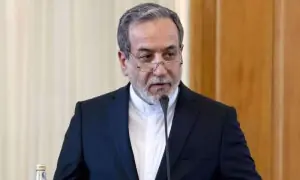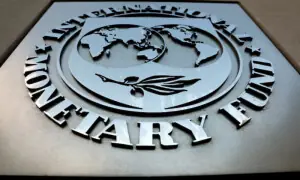The great reset: Integrating Islamic values into Pakistan’s workforce revolution
A.P.J. Abdul Kalam once said, ‘When learning is purposeful, creativity blossoms. When creativity blossoms, thinking emanates. When thinking emanates, knowledge is fully lit.’
While the world pivots toward sustainable development, embracing green finance, renewable energy, digital entrepreneurship, and climate-conscious practices – Pakistan finds itself navigating a more fundamental transformation.
“This transformation extends to HR policies — the new world requires global citizens to almost ignore the longitudinal gaps and work on uniform timelines to deliver projects.
The diversity of languages, culture, realities, and ambitions provides the essential eclectic strain to the deliverables which is essential to gain an edge beyond routine or linear outcomes.
This reset, though necessary, presents unique challenges.
For a country like Pakistan where comfort with traditional systems runs deep, the emerging paradigm of technology-driven transparency, critical creativity, and instant connectivity creates tension between expedient solutions and long-term institutional change.
Economics has always been the factor driving change in the world.
Need for food and service brought along early farming civilisations, lack of indigenous resourcing gave way to colonial empires, standalone financial parameters encouraged nuclear states, lack of mobility shifted the world to online connectivity -– the shops had to run, people had to make money, and people were needed to spend it too.
The note that needs to be dissolved like aspirin in water and gulped down is the mere fact that creativity now stands to run the economic machine, and creativity can neither be demanded nor forced.
It is the natural phenomenon that ‘happens’ only when one is addressed emotionally and is free to explore the dimensions that hover above the fact, and beyond the visible.
And for these phenomena to work best a happy, looked after personnel is the need of the hour.
The younger generation, of course, lacks patience for nonsense and has no hesitation in diving straight into their ‘own’ work, for they would rather not work for someone else.
Fortunately, we have a diverse mix of baby boomers to alpha at work and hence a mixed plate of talent, wisdom, experience, and tech savviness is ready to be utilised for charting a new course.
And this is where HR, which was previously a back-office function, gets the limelight.
Considering we all go through the Holy Quran at an early age and recite it substantially for occasions varying from offering prayers to more social ones, we have yet to integrate that philosophy into HR policies at workplaces.
We chase 10.0 or 12.0, whichever is the latest HR model or framework, without reflecting that the best of this is already available in the one undeniable document in our homes and offices.
The Holy Quran offers a comprehensive framework for professional conduct that transforms workplace relationships into opportunities for spiritual and ethical growth.
At its foundation lies the principle of justice, as Allah commands believers to “stand out firmly for justice, as witnesses to Allah, even if it be against yourselves, your parents, and your relatives” (4:135), establishing fairness over personal gain or favouritism.
This justice manifests through respectful communication, where we are instructed to “speak to people kindly” (2:83) and “speak justly, even if a near relative is concerned” (6:152), emphasising honest dialogue regardless of hierarchy.
The concept of amanah (trustworthiness) elevates professional responsibilities into sacred trusts, as “Allah commands you to render trusts to whom they are due” (4:58), making confidentiality and promises to colleagues matters of spiritual accountability.
The Quranic principle of shura (consultation) promotes collaborative leadership, as praised are “those who conduct their affairs by mutual consultation” (42:38), while patience becomes essential for handling workplace challenges, with believers encouraged to persevere through difficulties with grace (2:155-156).
The prohibition against backbiting ”spy not, neither backbite one another“ (49:12) —directly addresses workplace gossip and toxic environments, while the pursuit of ihsan (excellence) makes professional achievement a form of worship, as “Allah loves those who do ihsan” (2:195).
When integrated into daily practice, these principles create a work environment where meetings begin with gratitude, conflicts are addressed with kindness, confidentiality is sacred, decisions are collaborative, and excellence becomes both a professional standard and spiritual aspiration.
If I were to highlight Sadiq, Mohsin, Munsif, Ameen, Raheem, I may be listing Allah Subhana Taala’s names, but potential pillars of workplace communication guide.
If we could all instil these as characteristics defining our approach towards work and people, we would be setting ourselves up with a culture that is driven towards efficiency and productivity sans any barriers but those that stand to change the game for the better.
A very good example is the introduction of a communication guide by Faysal Bank recently.
They have introduced this guide to reinforce their value driven mission and empower each team member as its ambassador.
But I see it in a larger perspective and think that we need to do this across the landscape so that our workforce stays strong as uniquely progressive yet profound in their understanding and achievement of objectives.
Richard Florida, an economist, states that “Human creativity is the ultimate economic resource,’ in today’s swiftly meta morphing landscape of socio-economic-political shifts.
The fact that we are in an era where unpredictability is the only predictable event, and change is the only constant, a creative resource stands to bring stability to this fast-spinning globe.
For the latest news, follow us on Twitter @Aaj_Urdu. We are also on Facebook, Instagram and YouTube.


























Comments are closed on this story.